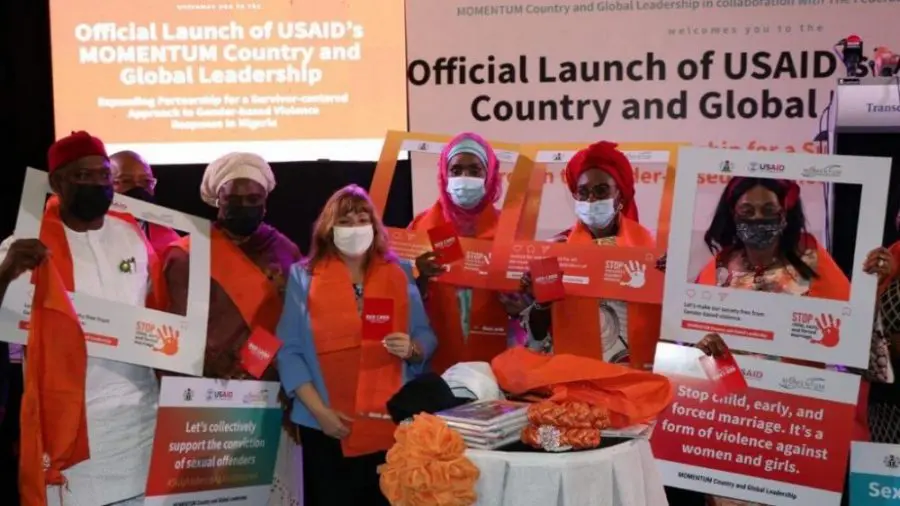On August 3, 2021, U.S. Chargé d’Affaires, Kathleen FitzGibbon, joined Nigerian Minister for Humanitarian Affairs Sadiya Umar Farouq representing Vice President Yemi Osinbajo, and Minister for Women’s Affairs, Dame Pauline Tallen, to ceremonially launch a four-year activity from the U.S. Agency for International Development (USAID) that will prevent and respond to gender-based violence (GBV) in the states of Sokoto and Ebonyi.
GBV is a health and social concern with far-reaching consequences affecting mostly women and girls. USAID’s $5 million MOMENTUM Country and Global Leadership in Nigeria (MCGL) will reduce maternal and child mortality by increasing host country commitment to provide quality health care. MCGL will address drivers of child, early and forced marriage, and prevent and mitigate the impacts of violence against women and girls.
“This new activity from USAID will strengthen GBV response mechanisms, help communities transform discriminatory gender and social norms that continue to subordinate women and make them vulnerable, and uphold and defend women’s health and human rights,” Chargé FitzGibbon said at the launch. “It will increase women’s voice and agency and reduce their vulnerability to gender-based violence.”
GBV is driven by structural inequalities and unequal power relations that render women subordinate due to limited access to education, employment, finances, healthcare, and opportunities to contribute to their family, community, and the country’s economic growth.
In Nigeria, one in three women and girls aged 15 to 24 years have experienced GBV. It is often at the hands of people they know, love, and trust. The unfortunate normalization of GBV against women and girls has continued under the guise of culture, tradition, and religion. GBV has reached epidemic proportions in Nigeria, exacerbated by the COVID-19 pandemic, in the form of intimate partner violence, rape, and early and forced marriage.
MCGL is already working in Sokoto and Ebonyi to engage communities, elected and traditional leaders, and a growing coalition of stakeholders to explore social norms that drive GBV. They will work with them to address gaps and develop interventions. This co-creation process can enhance laws and policies to protect vulnerable populations and improve access to reproductive health care.
USAID partner, Jphiego, will lead a growing consortium of Nigerian organizations to implement MCGL in Ebonyi and Sokoto due to their statistically high rates of GBV incidence and the presence of other USAID activities working to improve health outcomes.
“We are committed to working together for a safer society for women, girls and the vulnerable, Minister Farouq said “No time is more appropriate than now to adopt a policy of zero tolerance for gender-based violence in Nigeria.”
Ultimately, the project will increase women’s voices and agency throughout their life course in project locations and beyond.
Distributed by APO Group on behalf of U.S. Embassy and Consulate in Nigeria.






